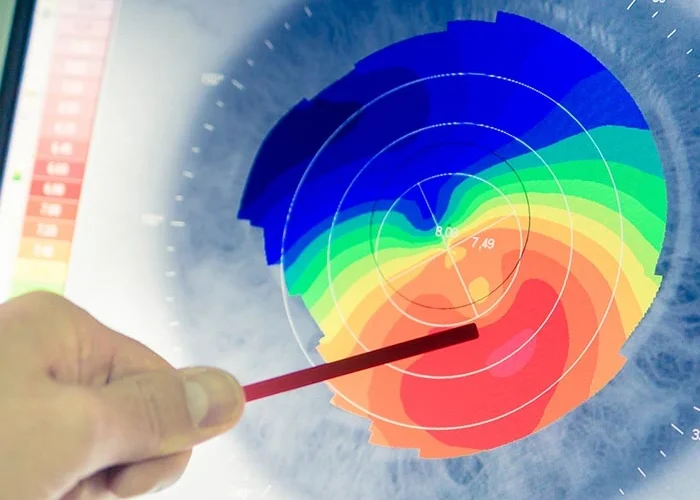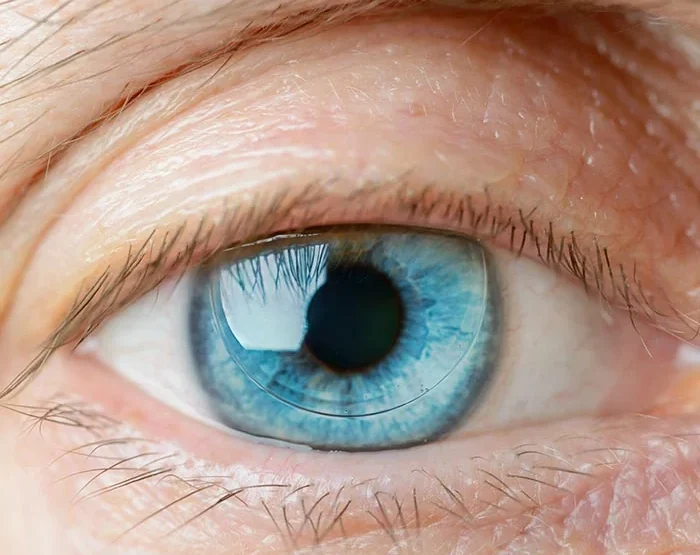Keratoconus


Keratoconus is a non-infectious eye condition in which an individual’s normally round cornea progressively thins and becomes cone-shaped. This irregularity causes images to be distorted when projected onto the retina, resulting in significant visual impairment. Keratoconus generally affects both eyes, though one eye will typically advance more quickly than the other.
There are other surgical treatment options available, including Corneal Collagen Cross-linking (CXL), Intacs, and Corneal Transplant Surgery. Our doctors can evaluate you to determine if surgical intervention is appropriate. We do not perform these procedures at Diagnostic Eye Center, but our office can coordinate the appropriate referral for you if needed.
The incidence of Keratoconus has been reported to affect 1 out of every 2,000 people and is often diagnosed in patients in their late teens. Males, females, and all ethnicities are affected equally. In the early stages of Keratoconus, glasses or soft contact lenses may be used to correct any vision issues. Our Houston optometrist Dr. Aric Welton is highly experienced in fitting patients with keratoconus to help them achieve their best vision.

RGP Lenses
Rigid Gas Permeable (RGP) contact lenses are unlike soft lenses in that they are rigid lenses made of durable plastic that transmits oxygen. The use of gas permeable contact lenses has remained at the core of the optical management of keratoconus. RGP lenses are typically smaller lenses that rest on the cornea.
These lenses, manufactured in a large variety of unique designs, provide a regular surface over the cornea to neutralize the visual distortions caused by an irregular cornea. Fitting hard lenses for patients with keratoconus may take time, as no one design is best for every type of keratoconus. Each lens design has unique characteristics, and the practitioner needs to carefully evaluate the needs of the individual and find the lens that offers the best combination of clear vision, comfort, and corneal health.
RGP contact lenses offer some outstanding benefits for patients diagnosed with keratoconus. Because they are made from a firm plastic, they retain their shape when you blink, which can provide sharper vision than pliable soft lenses. These lenses additionally allow oxygen to reach your eye, which promotes eye health and wearable comfort. RGP lenses do not contain water as soft lenses do, and therefore proteins and lipids from the eye do not adhere to the lenses as readily.
The doctors at Diagnostic Eye Center have reviewed and approved this content.

